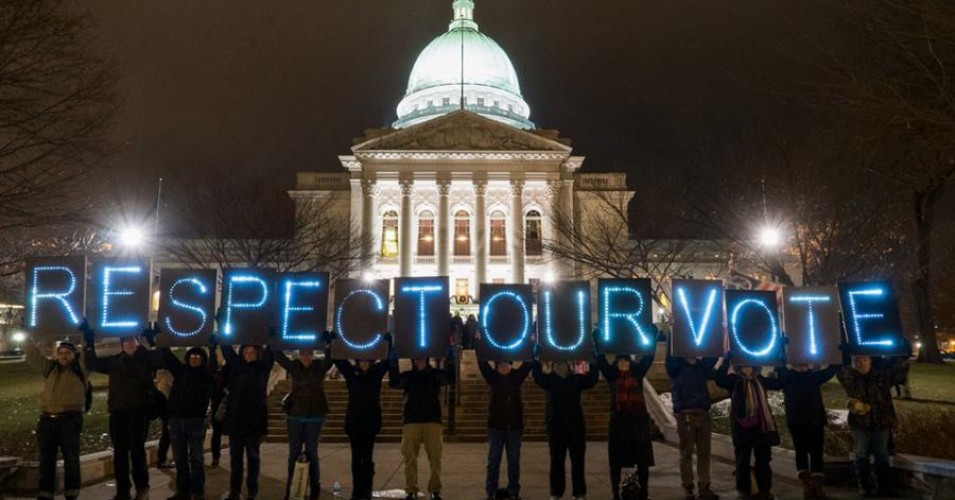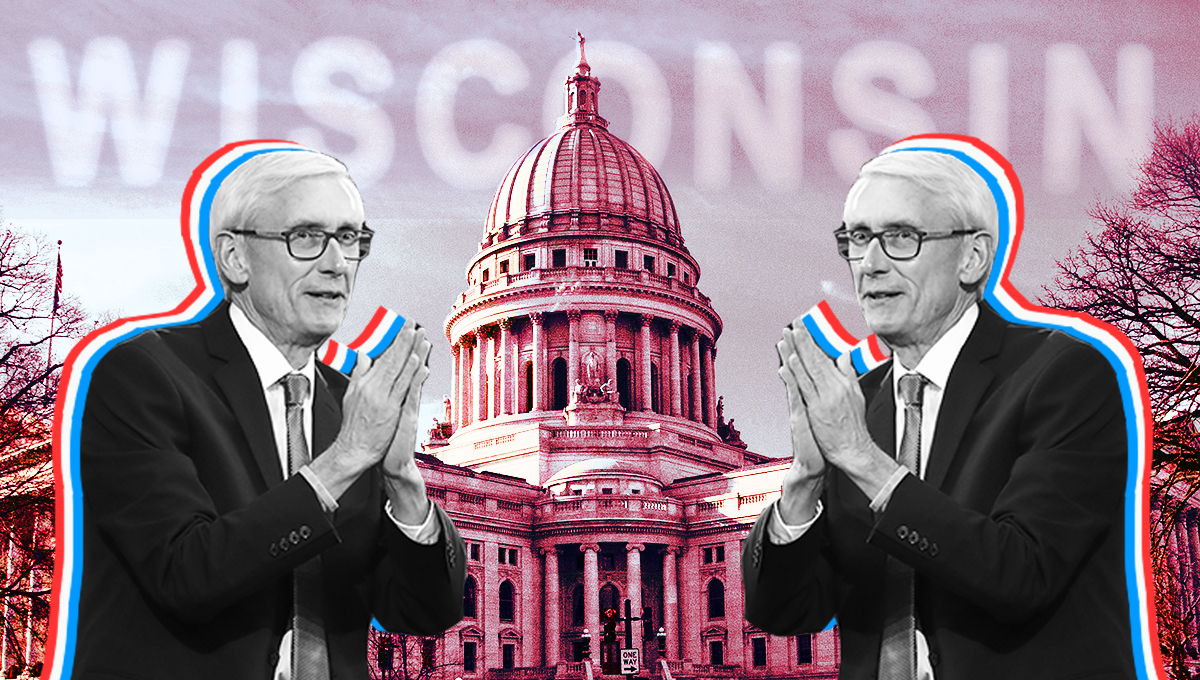
Wisconsin's outgoing Republican Governor Scott Walker signed bills Friday submitted by a Republican-controlled legislature that reduce the powers of the incoming Democratic governor and attorney general, and further inhibit early voting in the state.
In November’s midterm, Democrats won the races for governor and attorney general, but the legislature remained under majority Republican control. Earlier this month, the state legislature passed a series of bills seeking to limit the governor’s power over food stamp and health care policies, preventing the attorney general from opting out of a lawsuit seeking to overturn Obamacare.
“The entire thing is a hot mess,” Democratic Governor-Elect Tony Evers said last week on NBC’s “Meet the Press.”
Similar efforts by a Republican controlled legislature occurred in North Carolina in 2016 and are also currently happening in Michigan. While this isn't a new development, a power grab of this nature hasn’t occurred for more than two centuries.
In fact, efforts by a lame duck legislature and executive stripping power from incoming office holders of the opposite party, in a time of fierce partisanship, goes back to the beginnings of the 19th century. Then, as possibly today, the efforts were a last gasp by a party losing control to prevent the inevitable expansion of democracy as the demographics of the country were changing.
In the congressional and presidential elections of 1800, Thomas Jefferson’s party, the Democratic Republicans, defeated the Federalist Party and incumbent John Adams, taking control of the House of Representatives and the presidency. (Until the ratification of the 17th Amendment in 1913, state legislatures chose U.S. Senators.)
States then, as now, have the authority to determine voting requirements. Today, the U.S. has four amendments addressing the right, but none existed until after the Civil War. In the beginning of the republic, suffrage was only extended to white male property owners. In 1792, New Hampshire became the first state to abolish the property requirement for voting.
The U.S. was still a fledgling republic in the 1790s. Its continued existence was still in doubt with threats from internal dissension and the great European powers of the day. France was in the middle of the Reign of Terror after the new government overthrew the king and executed King Louis XVI along with thousands of French citizens. As the fervor of the French Revolution spread to the shores of America, elite Americans looked on in horror.
Fearful that a similar frenzy would overtake the U.S., the founding fathers took measures to prevent it.
In 1798, the Federalists passed the Alien and Sedition Acts. The Alien Act increased the number of years an alien had to live in the U.S. before applying for citizenship, and the law allowed the president extraordinary powers to detain and deport aliens. The Sedition Act criminalized newspaper reports critical of the Adams Administration.
Following the election of 1800, these laws were repealed. In their lame duck session, however, the Federalists passed a law expanding the judiciary, known as the “Midnight Judges”. This law led to the monumental case of Marbury v. Madison in 1803 whereby the Supreme Court affirmed the separate and co-equal status of the judicial branch. Both the repeal of the Alien and Seditions Acts and the Supreme Court’s decision in Marbury, for the time being, averted a Constitutional crisis and a possible civil war.
In subsequent years, the Federalist Party would cease to exist. Later the Whig Party with similar ideology to the Federalists would emerge, but this too disintegrated. In its aftermath, the Grand Old Party formed in 1854 as the beginning of today’s Republican Party. Meanwhile, suffrage expanded, at least to white males, as the country expanded westward.
The recent actions by today's Republicans in Wisconsin and neighboring Michigan are eerily similar, although in 1800 wealth disparity was not as great as it in today's America. Republican-dominated state legislatures in North Carolina, Michigan and Wisconsin have used their enormous campaign war chests to control the legislature, despite collectively garnering less votes than Democrats. Once establishing party control, these legislatures sought to solidify their power through redistricting or gerrymandering districts to ensure their continued power.
In Wisconsin, Walgreens won a Wisconsin Supreme Court decision, effectively lowering the company’s tax liability. Democratic legislators sought to amend existing law to close the tax loophole used by Walgreens, but the issue was never brought up for a vote. After the vote, Walgreens donated money to Republican leaders of the state legislature.
The actions taken by state legislations to, in effect, nullify election results could catalyze the electorate. “This probably would serve to keep the democratic base mobilized through 2020,” University of Wisconsin-Madison political science professor David Canon told Occupy.com.
Anti-gerrymandering ballot initiatives passed in four states this year, but not in Wisconsin. Any initiative would have to be approved by the state legislature first.
“We’re unlikely to see it, but I bet it would get 65 percent approval or more,” Canon said.
Should Governor-elect Evers take legal action as a result of legislation limiting his powers, the outcome appears to be in his favor as courts, including in North Carolina, have ruled that these laws amount to legislative overreach of executive powers. While the specific outcome of any potential legal action remains up in the air, this case and similar ones will test – as the Marbury case did in 1803 – whether the judicial branch of government remains a separate and equal branch of government.
The long-term results for the viability of the Republican Party won’t be known for some time, but already some prominent conservative voices are expressing concern. “I’m old enough to remember when it wasn’t a key part of Republican strategy to try, in effect, to nullify election result,” prominent conservative voice Bill Kristal tweeted.
Conservative commentator Max Boot spoke out in the weeks prior to the November election, saying, “I think, essentially, the Republican Party, as currently constituted, needs to be razed to the ground, it needs to be destroyed — and maybe, maybe, maybe out of the ashes we can build up a more reasonable center-right party which is something this country needs.”
Whether this happens to the Republican Party remains to be seen, but the strategy used – an appeal to white nationalism, cult of personality, and restricted voting rights – is not a viable long-term strategy, as American history has shown.













